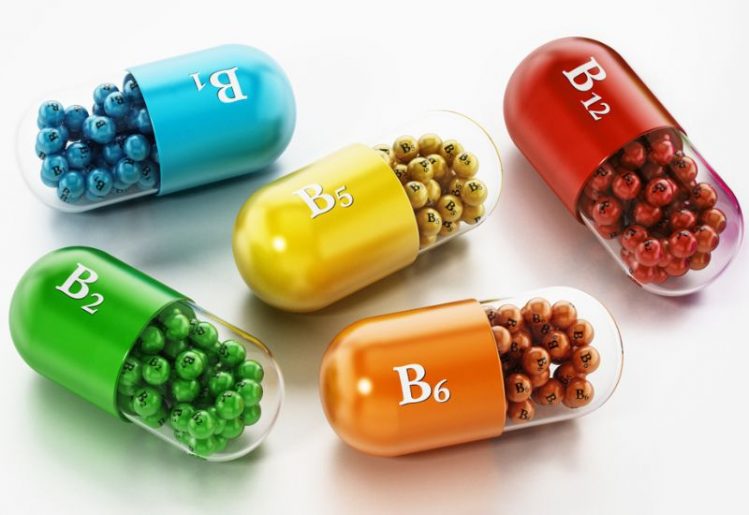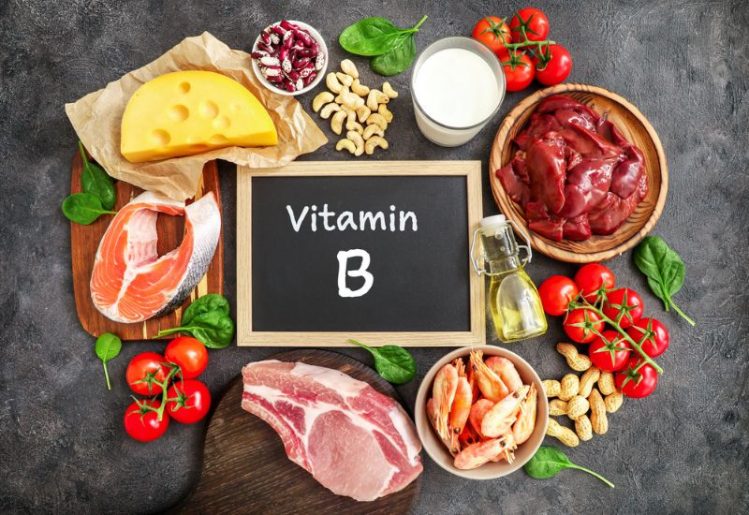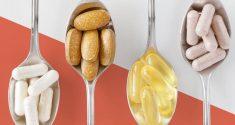The B Vitamins Explained
The B vitamins are a powerful group of nutrients that deliver a number of health benefits. Here is a quick breakdown explaining which vitamins are considered B vitamins, how to ensure you are getting sufficient B vitamins in your diet and the unique role each plays in maintaining optimum health.
Understanding the Different B Vitamins
 B vitamins are a family of water-soluble vitamins, meaning that they are flushed out of the body and it does not store them for later use. When looking at supplements containing B vitamins, you can find these vitamins as a B-complex or you can purchase them as single-ingredient supplements. Each B vitamin offers a specific advantage because of the functions it performs within the body.
B vitamins are a family of water-soluble vitamins, meaning that they are flushed out of the body and it does not store them for later use. When looking at supplements containing B vitamins, you can find these vitamins as a B-complex or you can purchase them as single-ingredient supplements. Each B vitamin offers a specific advantage because of the functions it performs within the body.
Following is a breakdown of the B vitamins, the functions they perform and the best food sources of each vitamin in this group.
Vitamin B1 (Thiamine)
The primary role of thiamine is to convert nutrients into energy that your body can use. You will find thiamine in wheat germ, whole grains, nuts, pork and sunflower seeds.
Vitamin B2 (Riboflavin)
This nutrient works by converting the food that you eat into energy. It also has powerful antioxidant properties. Foods with a high amount of riboflavin include beef, oatmeal, almonds, yogurt, milk and mushrooms.
Vitamin B3 (Niacin)
Niacin is distinguished for its role in helping the body's metabolism to work as engineered while also helping with the production and repair of DNA. Foods that are rich in niacin include tuna, chicken and lentils. While niacin is often added to plant-based foods, it is often not absorbed as easily.
Vitamin B5 (Pantothenic Acid)
Similarly to other vitamins in this family, pantothenic acid is instrumental in helping the body to convert food to energy. This vitamin also helps in cholesterol production and hormone delivery. Good sources of pantothenic acid includes liver, yogurt, shiitake mushrooms, fortified breakfast cereals, fish and avocado.
Vitamin B6 (Pyridoxine)
Pyridoxine is a vitamin that is known for its role in red blood cell production as well as the metabolism of amino acids. Foods that contain this vitamin include salmon, potatoes, tuna, poultry and chickpeas.
Vitamin B7 (Biotin)
Biotin is responsible for the metabolism of fats and carbohydrates. The best sources for biotin include salmon, sunflower, pork, beef, cheese, yogurt and eggs.
Vitamin B9 (Folate)
Folate is recommended for pregnant women because of its function in optimal cell growth and red and white blood cell formation. Leafy greens, liver, fortified orange juice, papaya and beans are all great sources of folate. Because it is not as readily available as a natural food source, it is standard practice for physicians to recommend a folate supplement for pregnant and lactating women.
Vitamin B12 (Cobalamin)
Most commonly known as vitamin B12, this nutrient is crucial for the optimal production of DNA and neurological function. B12 is found in a variety of animal sources such as eggs, meat, seafood and dairy products.
How Much of the B Vitamins Do You Need?
There is no cut-and-dried answer for the question surrounding how much of these vitamins that you need for optimal health. Each of the eight vitamins comes with a specific recommended daily amount. This amount varies depending on gender, age and underlying health conditions.
For example, pregnant and lactating women require a higher amount of B vitamins, particularly vitamin B and folate. Older adults require a greater amount of vitamin B12, primarily because the body gradually loses its ability to effectively absorb this nutrient with age as the appetite naturally declines.
Certain medical conditions also necessitate that individuals take in a higher amount of some B vitamins. Some of the most common issues that trigger nutrient deficiencies include cancer, celiac disease and anorexia. Because vitamin B12 is found in a myriad of animal products, it is not surprising to learn that vegetarians and vegans are also more likely to need to lean on supplements or fortified foods to ensure adequate intake of these nutrients. which are naturally found in animal products like meat, dairy, eggs and seafood.
Vegans and strict vegetarians could be at risk of developing a B12 deficiency if they don’t get enough of this vitamin through fortified foods or supplements. Lastly, the use of certain medications can also inhibits the absorption of some of these vitamins. Common offenders include birth control pills and proton pump inhibitors.
How to Get Enough B Vitamins in Your Diet
 These crucial vitamins are readily available in a variety of foods. Some food products are even fortified with extra levels of the vitamins.
These crucial vitamins are readily available in a variety of foods. Some food products are even fortified with extra levels of the vitamins.
If you are worried that you are not getting enough B vitamins into your body through diet alone, you would be wise to consider the use of a dedicated supplement. You can choose to take a comprehensive supplement that provides the needed B vitamins or focus on the individual vitamins in this family that you believe will be the most beneficial to your specific health needs.
Understanding how your intake of B vitamins impacts your overall health should convince you to make a dedicated effort to ensure you are nourishing your body with a sufficient amount of these important nutrients.




